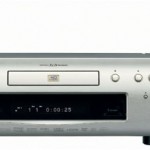Weekly News Roundup (26 October 2008)
A very quiet news week again. Or maybe I just wasn’t paying attention again. You can’t blame me, because I’ve had to send my PS3 out for repairs again … the third time in less than 2 month. It’s a distraction that I don’t really need at the moment, but from a blogging perspective, it’s great as it gives me something to write/rant about. I did manage to get the September NPD analysis up, and it’s good reading for Microsoft, and not so much for Sony, but more on that later.
 Starting with copyright news, the MPAA responds to claims by the EFF that their lawsuit against RealDVD is more about stiffling innovation, and less about actual copyright infringement. I’ve already talked about what I think of it all here.
Starting with copyright news, the MPAA responds to claims by the EFF that their lawsuit against RealDVD is more about stiffling innovation, and less about actual copyright infringement. I’ve already talked about what I think of it all here.
The MPAA is also doing damage to the education of future generations. The MPAA’s demands for colleges to crackdown on copyright theft means costs of up to $500,000 for colleges, which will no doubt be passed onto students. The MPAA has no right to do this, to put at risk the next generation of students just because they want to be a bit more greedy. It’s as careless as the current US administration appointing a “Copyright Czar” when there are so many other more important problems at hand.
And the worst thing is that none of this actually stops piracy. In fact, it’s arguable whether piracy can be stopped at all. Even Microsoft, who this week implemented the Windows Genuine Advantage program in China and met with a huge wave of anger from Chinese computer users, admits that pirates cannot be stopped. There used to be a time when companies thought to be competitive and attractive to customers by producing good products/services at reasonable prices. These days, companies simply want to take the shortcut by shutting down alternatives. And yes, piracy is an alternative to paying, sometimes the only sensible alternative when goods are ridiculously priced. But I’m not condoning piracy, rather, I’m critisizing senseless greed. Would more or less people pirate a product if it were priced at $20 a pop, as opposed to $200? And if a company wants to charge $200, then it should be prepared to put up with the higher levels of piracy, as they are the ones that forced people to go down this road. If these companies spent less on lobbying governments to pass illogical and anti-consumer laws (the latest being Sweden), and more on product innovation or to reduce prices, won’t it be more effective in fighting piracy?
 Let’s move onto HD before I start ranting too much again. Two piecs of news about the lower and upper range of Blu-ray hardware prices. The first is Best Buy’s $100 Blu-ray player offer – actually, it’s a $199 player (cheap already) plus a $100 voucher off selected Blu-ray movie purchases. It’s a good deal, although I would personally go with a Profile 2.0 player if your player has access to a ethernet connection.
Let’s move onto HD before I start ranting too much again. Two piecs of news about the lower and upper range of Blu-ray hardware prices. The first is Best Buy’s $100 Blu-ray player offer – actually, it’s a $199 player (cheap already) plus a $100 voucher off selected Blu-ray movie purchases. It’s a good deal, although I would personally go with a Profile 2.0 player if your player has access to a ethernet connection.
On the other end of the scale is Denon’s new ultra-high-end Blu-ray player, at a staggering £1,600 ($USD 2,500+). There will be people willing to pay this much for a Blu-ray player, I’m sure, but probably not as many as there were about two months ago. The economic strife hitting almost every country in the world is also hurting Blu-ray sales. Analysts, who predicted only last week that Blu-ray would sell 5 million machines in 2008 (and to 40 million in 2012), have downgraded their prediction by 25%. Over the last week, Sony’s stock prices on Nikkei fell dramatically, by 14% in a single day at one point, as Sony revised their profit predictions downwards by an amazing 59%. Now is probably the worst possible time to be promoting a premium alternative to DVD, and promotions like Best Buy’s $100 Blu-ray player costs the BDA or studios a lot of money. But without promotions, then there’s the risk that Blu-ray will die a slow death, which is an even worse outcome.
Samsung released a new Blu-ray player that also supports Netflix video streaming. It makes sense as Blu-ray Profile 2.0 players are all capable of Internet connections and have the processing power necessary to handle video streaming. While I don’t think video streaming can replace a disc format just yet (and it’s debatable whether discs will go away completely or not, I mean in the age of MP3s, CDs still have a place right?), but it’s giving people an alternative to Blu-ray and DVD.
On the computer side of things, I found this interesting article that compared integrated GPU solutions to dedicated graphics cards as to which one is best for Blu-ray decoding. The conclusion seems to be that integrated GPUs are good enough, when paired with a decent CPU, but if you want practically non existent CPU usage (for noise/heat related reasons) during Blu-ray playback (to get the GPU, possibly on a passive cooled card, to do all the work), then a dedicated card is what you need.
![]() And lastly, in gaming, there’s not much news at all. The reaction from last week’s NPD figures is the usual spin from all the camps. Nintendo were happy because they’re selling the most consoles and plenty of software to go with it (even though it’s always the trio Wii Play, Wii Fit and Mario Kart). Microsoft were happy because they beat Sony and sold the most software, although you wonder how many more price cuts they can manage before they’ll have to give away their consoles. Sony were happy because even though their console cost more than the 360 and Wii combines with a few games thrown in, they still sold a few even if software sales are not exactly what they are hoping for with only 9.8% of top 10 titles (but I’m sure LittleBigPlanet will do well for them, if it ever gets released). So everyone’s happy, and that makes me happy too, I suppose. I’m FIFA 09’ing on my 360 at the moment and it’s great. It would be greater if my PS3 isn’t at Sony’s repair center all the time though.
And lastly, in gaming, there’s not much news at all. The reaction from last week’s NPD figures is the usual spin from all the camps. Nintendo were happy because they’re selling the most consoles and plenty of software to go with it (even though it’s always the trio Wii Play, Wii Fit and Mario Kart). Microsoft were happy because they beat Sony and sold the most software, although you wonder how many more price cuts they can manage before they’ll have to give away their consoles. Sony were happy because even though their console cost more than the 360 and Wii combines with a few games thrown in, they still sold a few even if software sales are not exactly what they are hoping for with only 9.8% of top 10 titles (but I’m sure LittleBigPlanet will do well for them, if it ever gets released). So everyone’s happy, and that makes me happy too, I suppose. I’m FIFA 09’ing on my 360 at the moment and it’s great. It would be greater if my PS3 isn’t at Sony’s repair center all the time though.
Wow, this has been a short WNR, hasn’t it? Less of my inane writings you’ll have to read, which is probably the best news of the week. I’ll try to act like I’m not hurt by that, truly, I will. See you next week.


